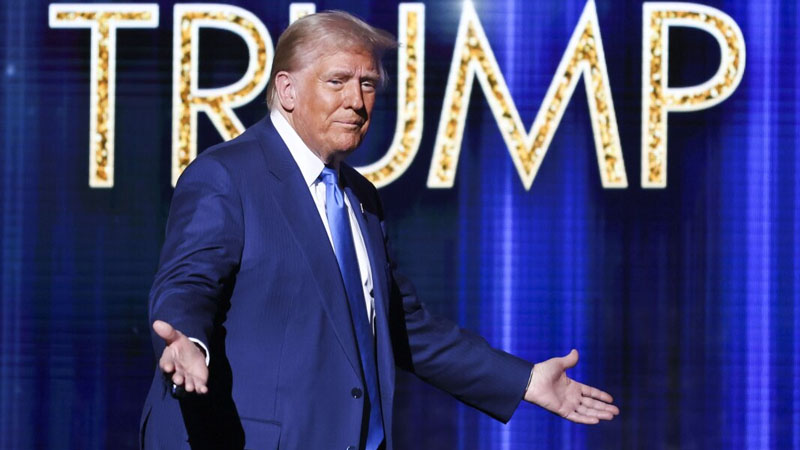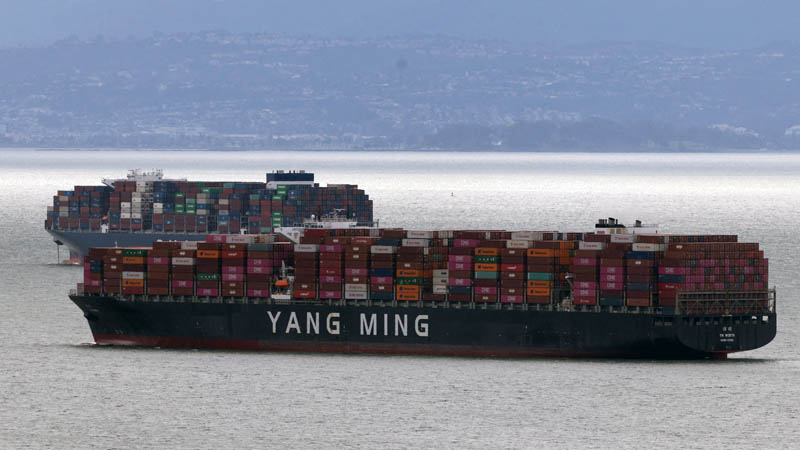While much of the spotlight remains on President Donald Trump’s sweeping tariff policy, another under-the-radar move by his administration may soon deliver a significant blow to U.S. trade and supply chains, warns logistics expert and Flexport CEO Ryan Petersen.
According to Petersen, a new rule expected to be enacted by the U.S. Trade Representative’s (USTR) office on April 17 could impose massive fees on container ships linked to Chinese manufacturing. The regulation would levy charges of up to $1.5 million per port call for vessels made in China and between $500,000 to $1 million if a carrier merely owns or has ordered a ship from a Chinese shipyard.
More: JD Vance Slammed Online Over ‘Chinese Peasants’ Remark Defending Trump Tariffs
More: Trump Shuts down Biden’s Billion-Dollar bet on Anti-Obesity Drugs
“On April 17th the U.S. Trade Representative’s office is expected to impose fees of up to $1.5M per port call for ships made in China and for $500k to $1M if the ocean carrier owns a single ship made in China or even has one on order from a Chinese shipyard,” Petersen wrote.
This policy, introduced shortly after Trump blessed a controversial deal with dockworkers to limit automation at U.S. ports, could deliver a twofold blow, reducing American port competitiveness while disrupting nationwide trade flows.
“Ocean carriers have announced that to reduce the fees, they will skip the smaller ports like Seattle, Oakland, Boston, Mobile, Baltimore, New Orleans, etc. Some carriers have said they’ll just move the capacity serving the U.S. to other trade lanes altogether,” he added.

(Heather Khalifa/AP)
The impact on local economies could be devastating. Bypassing smaller ports would threaten jobs and force importers and exporters to reroute freight to larger ports. “Huge extra costs will be incurred as trucks and trains run hundreds of extra miles to the main ports on each coast,” Petersen warned.
Larger ports like New York, Los Angeles, and Houston would then face the burden of absorbing rerouted cargo, potentially leading to congestion similar to the shipping crisis witnessed during the COVID-19 pandemic.
Even more concerning to Petersen is a long-term mandate within the policy, requiring 15 percent of all U.S. exports to be shipped on American-made vessels by 2032—an expectation he sees as wildly unrealistic.
More: Doug Emhoff SLAMS His Own Law Firm for $100M Deal with Trump—Kamala Harris Breaks Silence at Gala
More: Judge finds Trump admin in contempt over Deported U.S. Resident’s Return
“There are only 23 American-made and crewed container ships in the world today,” Petersen noted, adding that none of them operate internationally and that the U.S. hasn’t produced a single container ship in 2024. “One shipyard in China made more commercial ships last year than the total number the U.S. has produced since World War Two.”
“Given what just happened with the new tariffs tanking global equities markets, it would be crazy for the USTR to go through with this rule,” Petersen concluded. “U.S. manufacturers… should brace themselves for impact because all indications are that this rule is coming on April 17th.”
READ NEXT:
- Biden calls out Trump over Social Security shakeup and slams staff cuts
- Thieves pull off movie style heist and vanish with millions in LA jewelry
- Kanye West Accuses Taylor Swift of Wild Affair, Now She’s Taking Legal Action
- JD Vance has trophy slip-up during Ohio State’s big moment
- Ciara Steals the Spotlight with Glam Look and Surprise New Music Drop

